Huntsman Cancer Institute at the University of Utah | Strategic Alliance Partners
Latest from Huntsman Cancer Institute at the University of Utah

Researchers at University of Utah Health have designed new digital tools that use relevant information from patient health records to prompt doctors to consider lung cancer screening for high-risk patients and provide personalized guidance on screening.
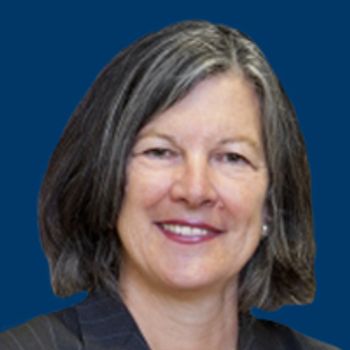
WebMD awarded Huntsman Cancer Institute at the University of Utah its highest honor, the 2023 WebMD Elite Choice Award.
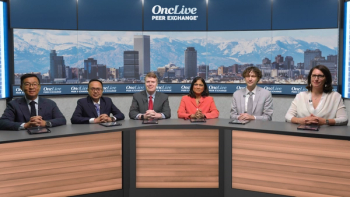
Key Takeaways: Advancements and Challenges in Kidney Cancer Treatment
ByUlka Vaishampayan, MD,Alan Tan, MD,Laurence Albiges, MD, PhD,Neeraj Agarwal, MD,Matthew T. Campbell, MD, MS,Benjamin Maughan, MD, PharmD Leading experts discuss the exciting progress and challenges in the field of kidney cancer treatment, addressing topics like immunotherapy, biomarkers, and the role of multidisciplinary care.

Triple Combination Therapies in RCC: Clinical Trial Insights
ByUlka Vaishampayan, MD,Alan Tan, MD,Laurence Albiges, MD, PhD,Neeraj Agarwal, MD,Matthew T. Campbell, MD, MS,Benjamin Maughan, MD, PharmD Experts discuss the potential of triple combination therapies for high-risk renal cell carcinoma (RCC) patients and the challenges posed by their toxicity profiles, emphasizing the need for compelling clinical trial data.

Novel Therapies for Advanced RCC: LITESPARK-005 and Treatment Sequencing
ByUlka Vaishampayan, MD,Alan Tan, MD,Laurence Albiges, MD, PhD,Neeraj Agarwal, MD,Matthew T. Campbell, MD, MS,Benjamin Maughan, MD, PharmD Leading oncologists discuss advanced treatment options for patients with progressing renal cell carcinoma (RCC), focusing on the promising results from LITESPARK-005 and treatment sequencing strategies.

Navigating Toxicity Discussions With Patients With Renal Cell Carcinoma
ByUlka Vaishampayan, MD,Alan Tan, MD,Laurence Albiges, MD, PhD,Neeraj Agarwal, MD,Matthew T. Campbell, MD, MS,Benjamin Maughan, MD, PharmD Expert insight into how to discuss and manage treatment-related toxicities with cancer patients and their families, emphasizing the importance of early communication and vigilance.

Managing AEs in Cabo Nivo Combination Therapy for Advanced RCC
ByUlka Vaishampayan, MD,Alan Tan, MD,Laurence Albiges, MD, PhD,Neeraj Agarwal, MD,Matthew T. Campbell, MD, MS,Benjamin Maughan, MD, PharmD Expert oncologists discuss the nuances of managing toxicities associated with Cabozantinib and Nivolumab combination therapy for advanced renal cell carcinoma (RCC).

Sequencing and Second-Line Therapy in RCC: Patient Scenario
ByUlka Vaishampayan, MD,Alan Tan, MD,Laurence Albiges, MD, PhD,Neeraj Agarwal, MD,Matthew T. Campbell, MD, MS,Benjamin Maughan, MD, PharmD Expert oncologists discuss the challenges and considerations in choosing second-line therapy for a patient with metastatic renal cell carcinoma (RCC) in a case-based context.

Key Decision Factors in Selecting Frontline Therapy for Metastatic RCC
ByUlka Vaishampayan, MD,Alan Tan, MD,Laurence Albiges, MD, PhD,Neeraj Agarwal, MD,Matthew T. Campbell, MD, MS,Benjamin Maughan, MD, PharmD Renowned oncologists discuss critical factors influencing their decisions for frontline therapy in metastatic renal cell carcinoma (RCC), including risk assessment, sites of metastasis, performance status, and treatment goals.

Comparing Treatment Combinations in Renal Cell Carcinoma
ByUlka Vaishampayan, MD,Alan Tan, MD,Laurence Albiges, MD, PhD,Neeraj Agarwal, MD,Matthew T. Campbell, MD, MS,Benjamin Maughan, MD, PharmD A comprehensive discussion on VEGF-TKI-based combinations and immune checkpoint inhibitor combinations in the treatment of renal cell carcinoma, featuring key clinical trial results and treatment strategies.

Frontline Therapy for Renal Cell Carcinoma: Choosing the Right Regimen
ByUlka Vaishampayan, MD,Alan Tan, MD,Laurence Albiges, MD, PhD,Neeraj Agarwal, MD,Matthew T. Campbell, MD, MS,Benjamin Maughan, MD, PharmD Oncologists discuss the selection of the optimal frontline therapy for renal cell carcinoma, considering factors like response rates, progression, quality of life, and long-term results.

Imaging and Staging Considerations in Renal Cell Carcinoma
ByUlka Vaishampayan, MD,Alan Tan, MD,Laurence Albiges, MD, PhD,Neeraj Agarwal, MD,Matthew T. Campbell, MD, MS,Benjamin Maughan, MD, PharmD Key opinion leaders discuss the use of brain MRI and bone assessment in the staging and monitoring of patients with renal cell carcinoma.

Frontline Therapy for Advanced Renal Cell Carcinoma: Patient Scenario Discussion
ByUlka Vaishampayan, MD,Alan Tan, MD,Laurence Albiges, MD, PhD,Neeraj Agarwal, MD,Matthew T. Campbell, MD, MS,Benjamin Maughan, MD, PharmD Renowned oncologists discuss the case of a 75-year-old man with advanced renal cell carcinoma, providing insights into evaluation and frontline therapy choices.

Overview on Advanced RCC: Epidemiology, Presentation, and Risk Stratification
ByUlka Vaishampayan, MD,Laurence Albiges, MD, PhD,Neeraj Agarwal, MD,Matthew T. Campbell, MD, MS,Benjamin Maughan, MD, PharmD,Alan Tan, MD Explore statistics behind and possible patient presentations of advanced renal cell carcinoma (RCC), with insight into IMDC risk stratification that may influence treatment strategies and outcomes.

The National Cancer Institute awarded investigators at Huntsman Cancer Institute a grant totaling more than $3 million to conduct a clinical trial to see if combining creatine monohydrate supplementation and resistance exercise training helps preserve muscle in people who have metastatic prostate cancer.

Huntsman Cancer Institute at the University of Utah and Utah Valley University proudly announce a groundbreaking partnership called the “Huntsman Cancer Institute–Utah Valley University Health Collaborative.”

Neeraj Agarwal, MD, discusses the benefit of PARP inhibitors compared with chemotherapy in patients with metastatic castration-resistant prostate cancer.

Researchers at Huntsman Cancer Institute identified potential new treatment options for people with endometrial cancer.

This month, researchers reduce the risk of infections after pancreatic surgery and discover the best cost-effective treatment combination for prostate cancer patients.

Neeraj Agarwal, MD, discusses future questions to be addressed following the phase 3 TALAPRO-2 trial evaluating the combination of talazoparib plus enzalutamide in patients with metastatic castration-resistant prostate cancer.

Neeraj Agarwal, MD, speaks on the significance of the approval and how the combination of talazoparib and enzalutamide will fit into the treatment landscape of HRR gene–mutated mCRPC.

Dr Agarwal discusses the significance of the FDA approval of talazoparib plus enzalutamide in HRR gene–mutated mCRPC, key efficacy and safety data from the TALAPRO-2 trial, and how this combination further supports the use of PARP inhibitors in the mCRPC treatment paradigm.

Neeraj Agarwal, MD, discusses the role of PARP inhibitors in metastatic castration-resistant prostate cancer and the potential evolutions of the metastatic castration-resistant prostate cancer and metastatic castration-sensitive prostate cancer treatment paradigms.
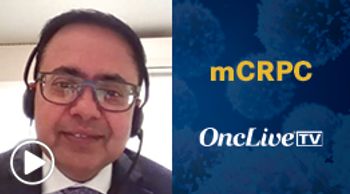
Neeraj Agarwal, MD, discusses the significance of the FDA approval of talazoparib plus enzalutamide in patients with metastatic castration-resistant prostate cancer harboring homologous recombination repair gene alterations.

The Center for Health Outcomes and Population Equity at Huntsman Cancer Institute and the University of Utah, in partnership with the Montana State University Center for American Indian and Rural Health Equity, received a grant for Cancer Control in Persistent Poverty Areas from the National Cancer Institute.

Huntsman Cancer Institute at the University of Utah, a pioneering innovator dedicated to developing more effective ways to care for and prevent cancer, announced plans today for a new Huntsman Cancer Institute comprehensive cancer center in Utah County.

In a recently published manuscript, Howard Colman, MD, PhD, identified a potential breakthrough in glioblastoma treatment.

Huntsman Cancer Institute at the University of Utah, the only place in the region devoted to developing new treatments for cancer, announced the opening of the Kathryn F. Kirk Center for Comprehensive Cancer Care and Women’s Cancers.
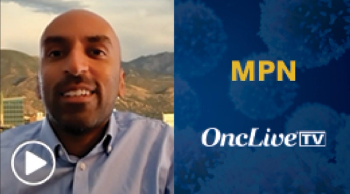
Sagar Patel, MD, discusses how the timing of autologous stem cell transplant can affect outcomes in those with myelofibrosis, including the risk of patients developing post-transplant complications.
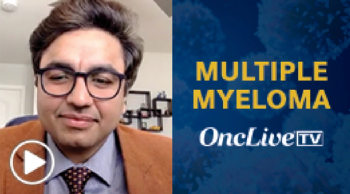
Amandeep Godara, MBBS, discusses important patient factors to consider when deciding between a CAR T-cell therapy vs bispecific antibody in relapsed/refractory multiple myeloma, and the importance of mitigating treatment-related toxicities associated with the administration of bispecific antibodies in this disease setting.

















